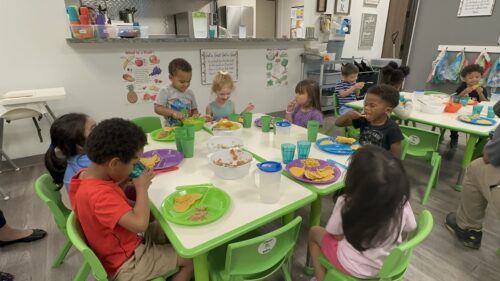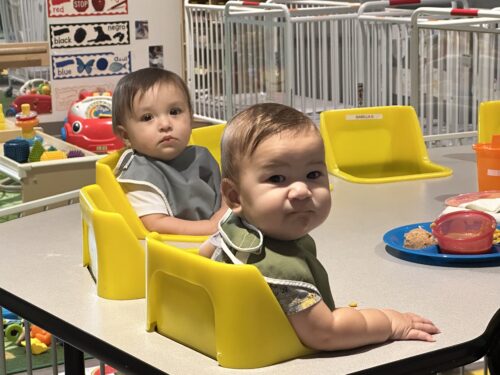As the holiday season approaches, families across Greater Houston are preparing to gather around the table, share meals, and create lasting memories. But beyond the turkey and traditions, family mealtime offers something even more profound: a powerful opportunity to support early childhood development.
At Collaborative for Children, we understand that the foundation for lifelong learning begins at home. Our mission is to champion young futures by empowering parents, educators, and child care providers with the tools and knowledge to nurture children from birth to age five. One of the simplest yet most impactful tools? Sharing meals together.

According to Houston Family Magazine, frequent family meals help children develop essential social and developmental skills. Dr. Laurel Williams, a psychiatrist at Baylor College of Medicine, explains that mealtime is more than just feeding—it’s a moment of connection that fosters emotional regulation, language development, and social engagement.
Children who regularly eat with their families are more likely to try new foods, develop motor skills, and learn how to engage in conversation. These interactions build a sense of safety and belonging, which are critical for healthy brain development. In fact, joyful singing at the dinner table, like a child belting out “Twinkle, Twinkle”, is a sign that they feel emotionally secure and regulated.
The Brain Matters documentary offers compelling insights into how early experiences shape the architecture of a child’s brain. From nutrition and play to language and relationships, every moment of connection contributes to cognitive growth and emotional resilience.
When families prioritize mealtime, they create a consistent environment where children feel seen, heard, and valued. These “serve and return” interactions, where adults respond to a child’s gestures, words, or emotions are foundational to building neural pathways that support learning and self-regulation.

In Greater Houston, Collaborative for Children is leading the charge to ensure every child has access to high-quality early learning experiences. Through our Centers of Excellence, we partner with certified child care providers to deliver STEAM-based curriculum, professional development, and family engagement strategies that prepare children for school and life.
Our Collab-Lab mobile classroom brings early education directly to underserved communities, offering hands-on learning, social-emotional support, and resources for parents. Whether at home or in a certified child care center, we believe every child deserves the right start.
“Before we started focusing on family meals, dinner was just something to get through,” says Maria, a Houston mom of two. “Now, it’s our favorite time of day. My youngest has started singing at the table, and my oldest opens up about school. It’s changed how we connect as a family.”
Stories like Maria’s reflect the transformative power of intentional parenting. By simply sitting down together, families can foster emotional security, language development, and stronger bonds.

Family mealtime supports emotional security, language development, and social skills, all of which are foundational for early learning.
Encourage conversation, involve your child in meal preparation, and keep the atmosphere positive and screen-free to foster connection and learning.
We provide parenting education, help families find quality child care, and offer mobile learning experiences through our Collab-Lab, all designed to support children ages 0–5.
Resources for families